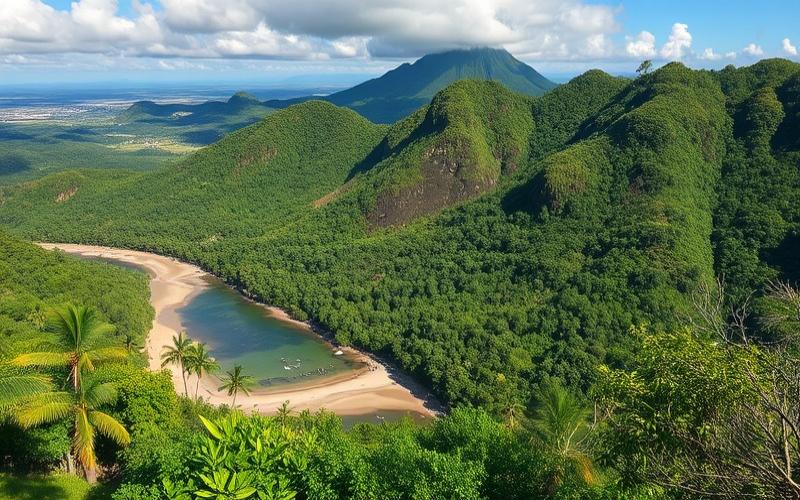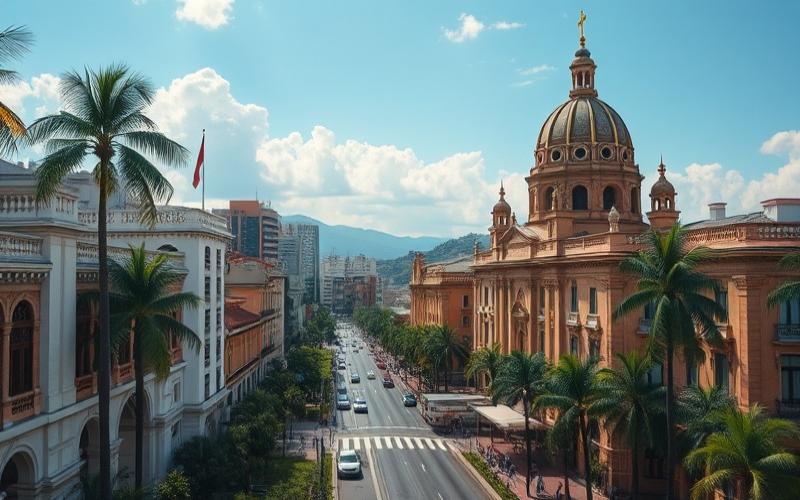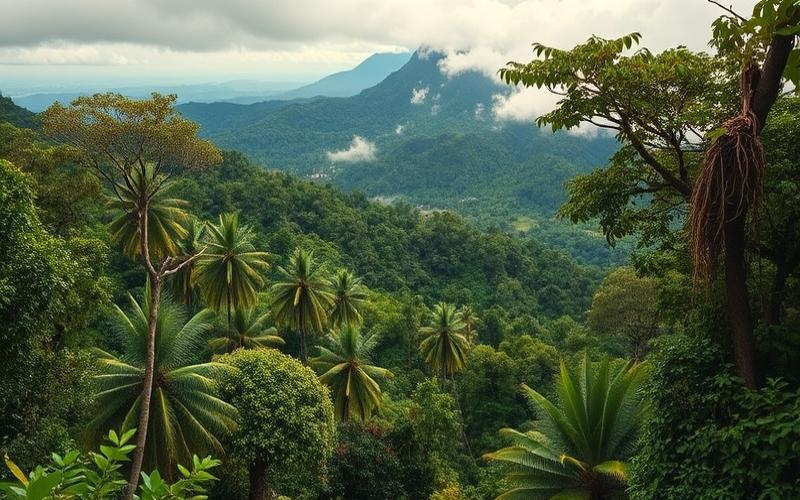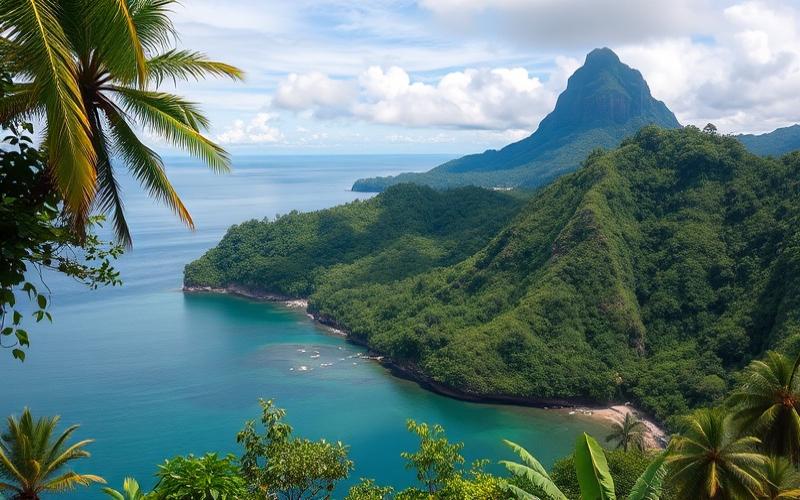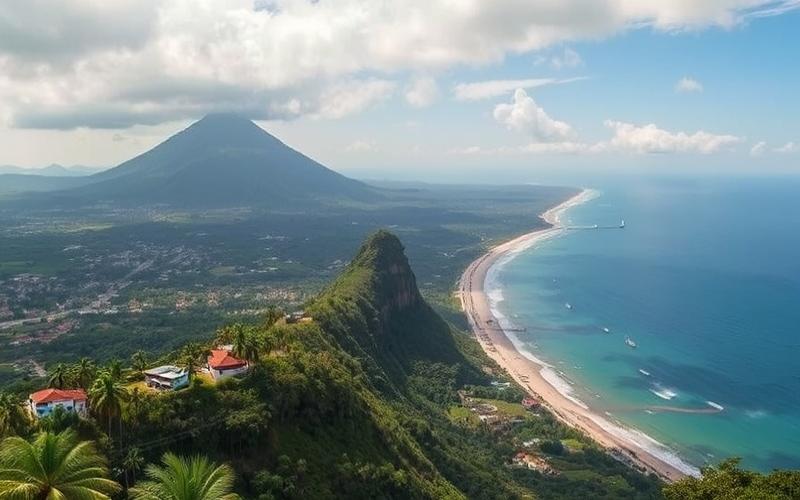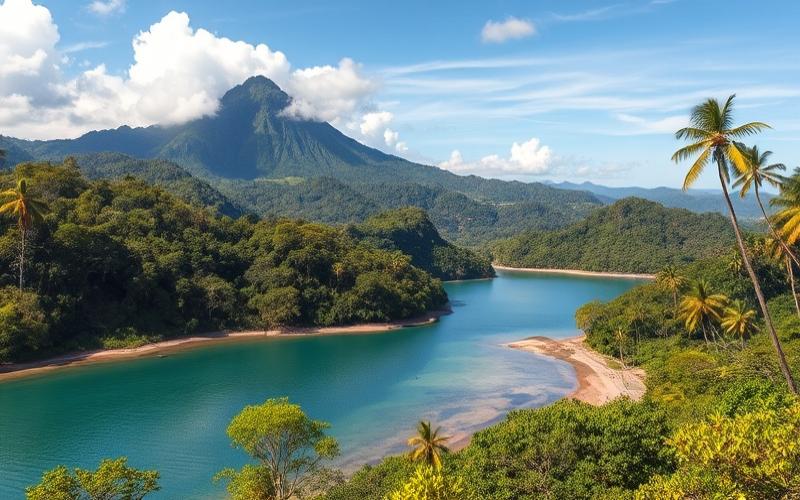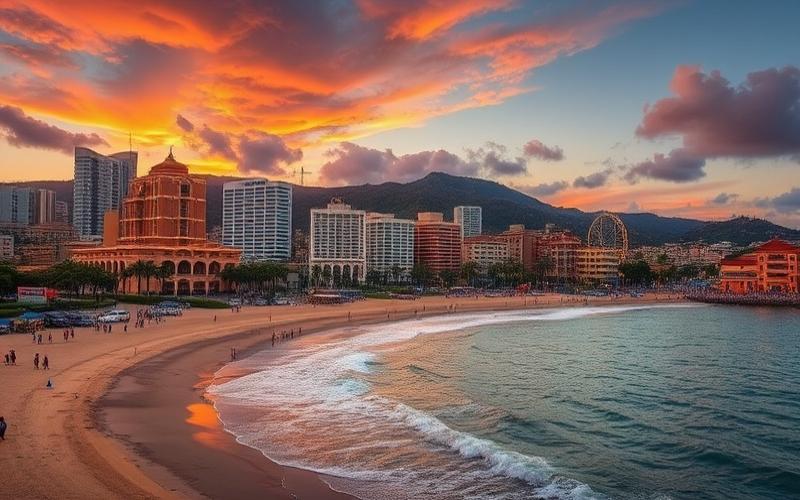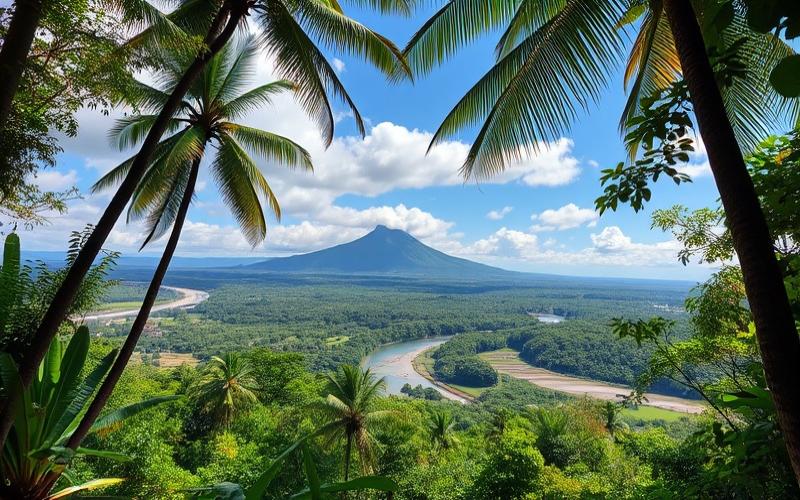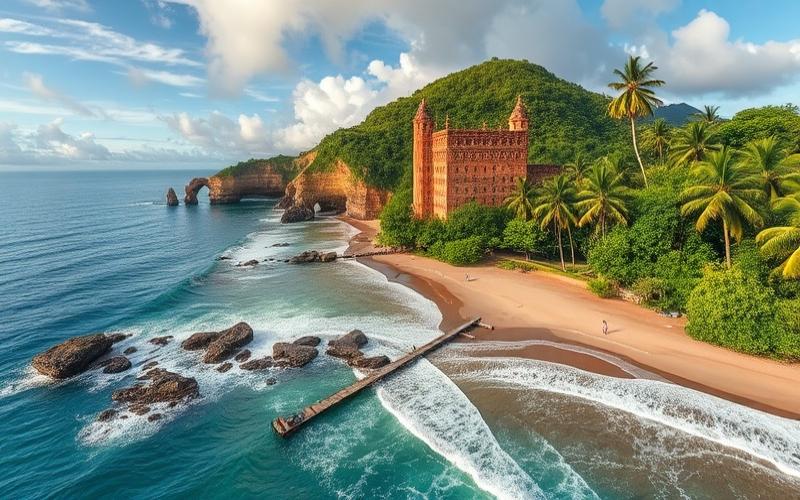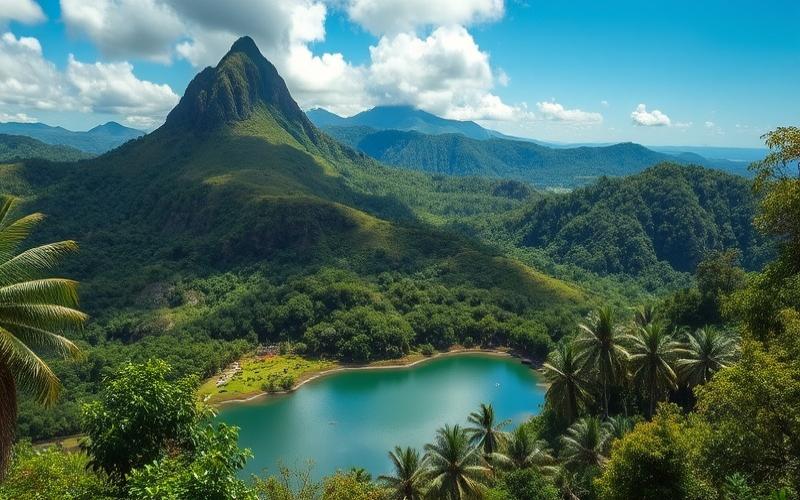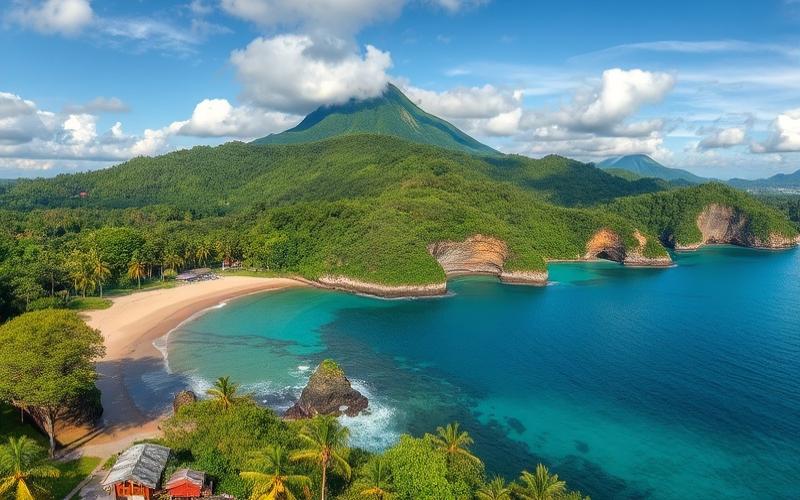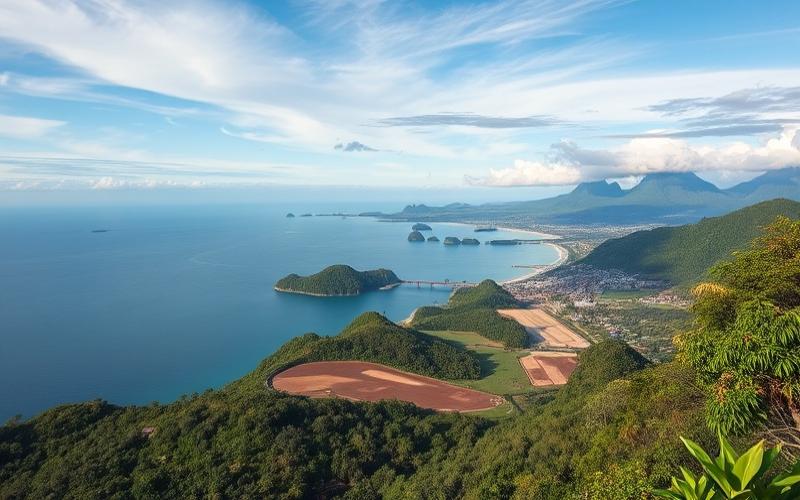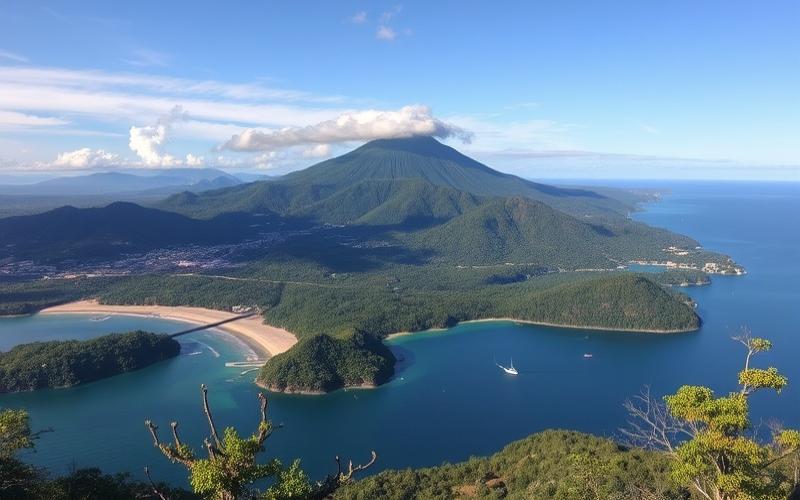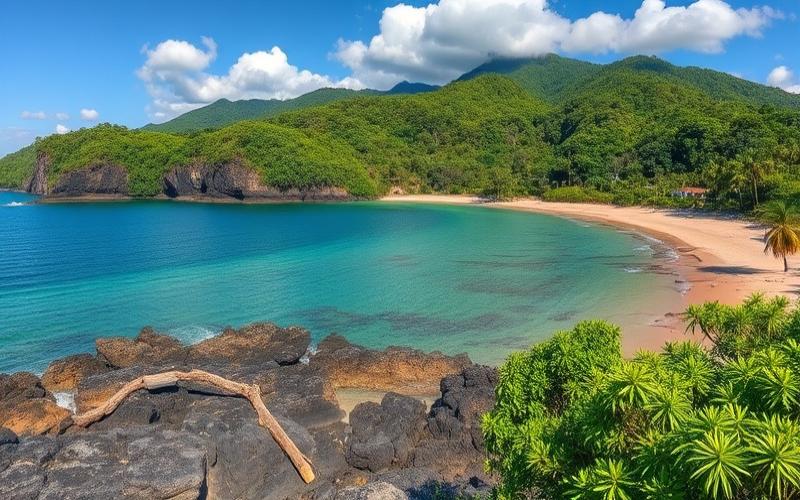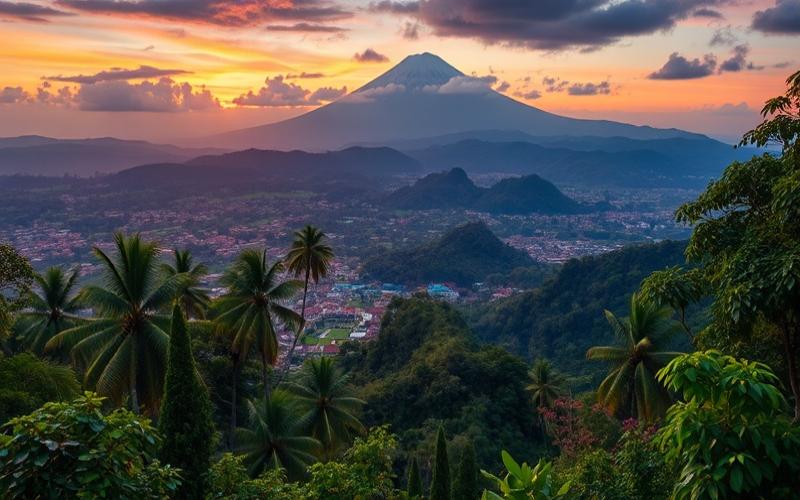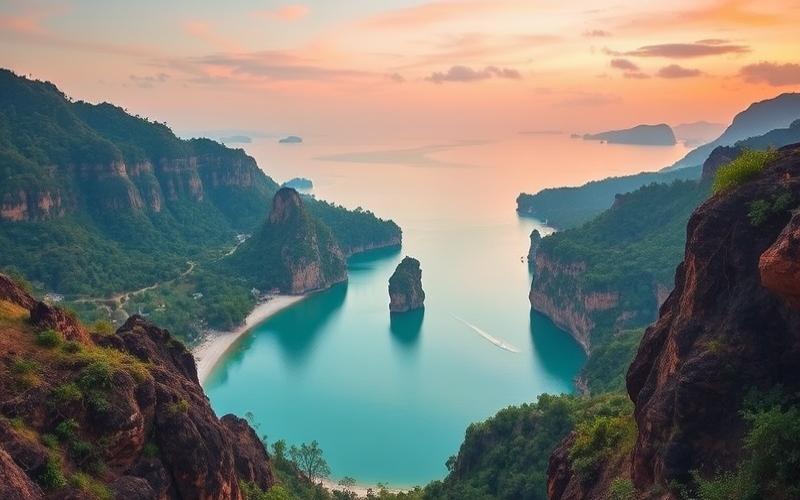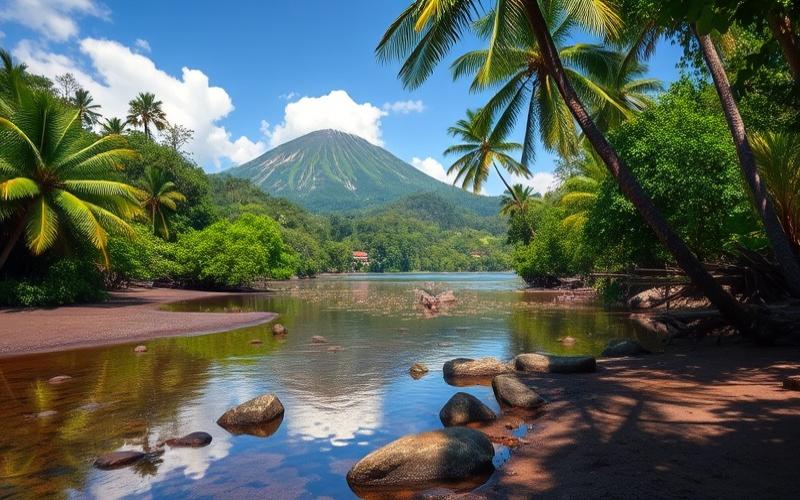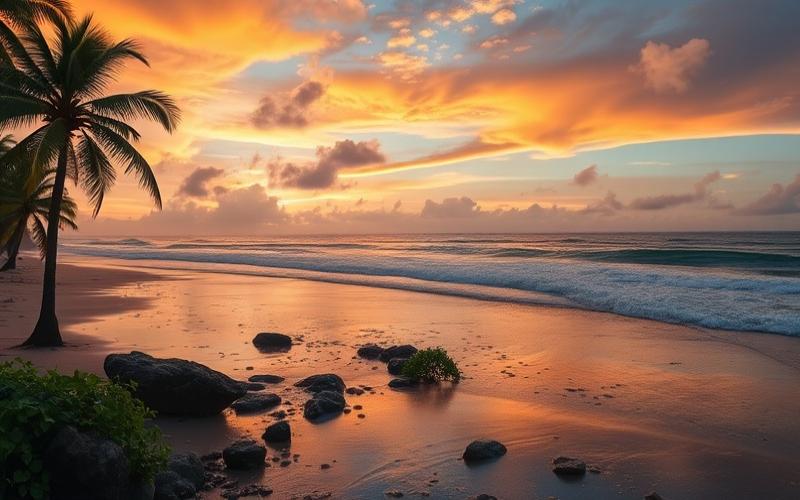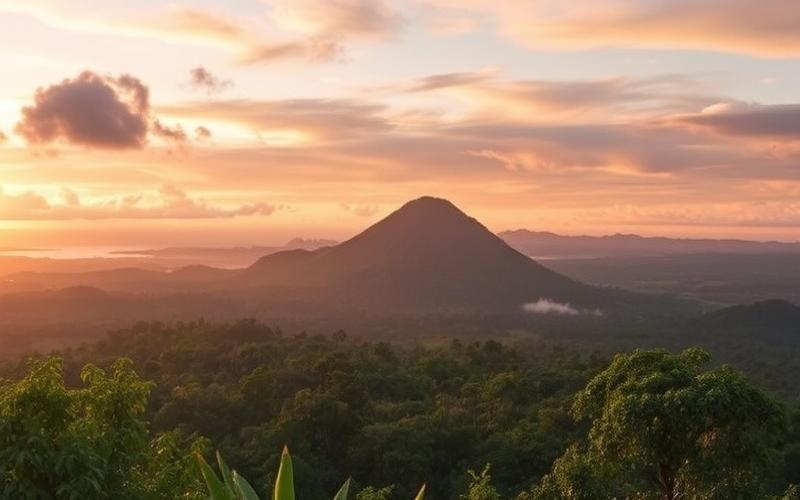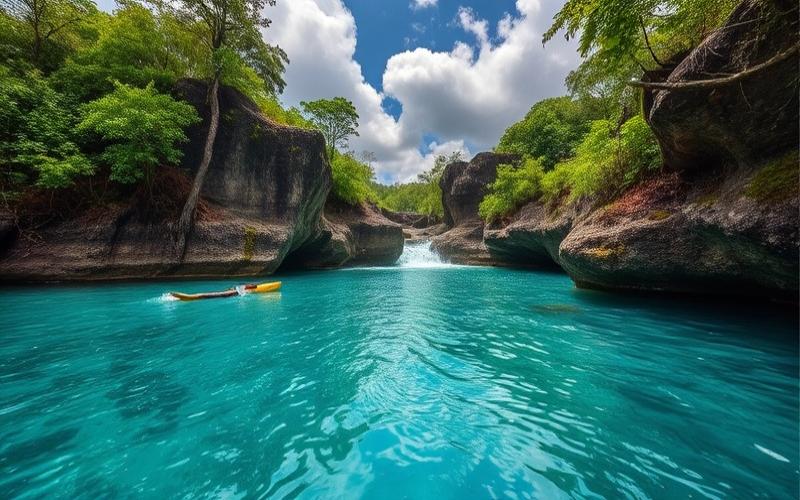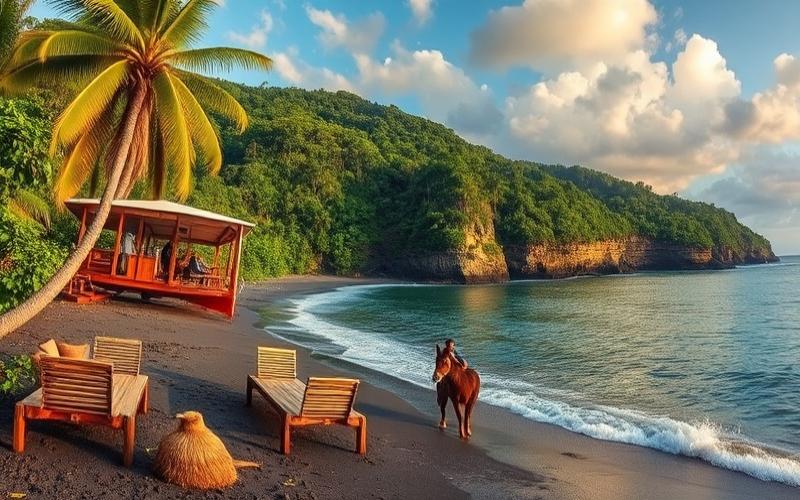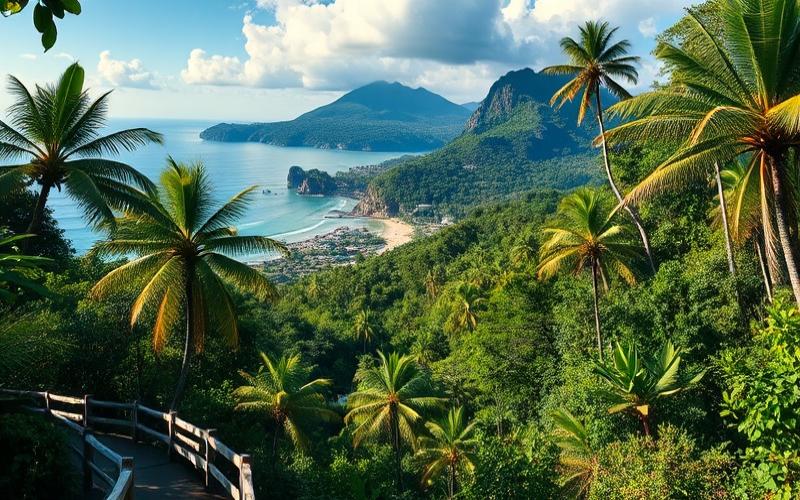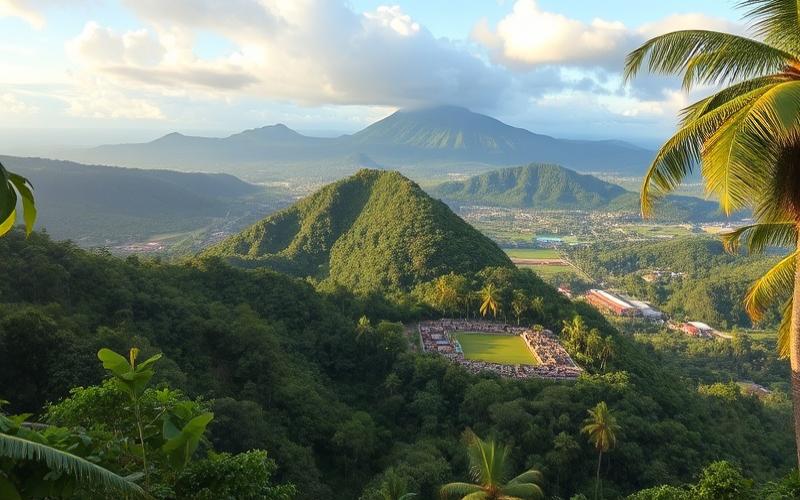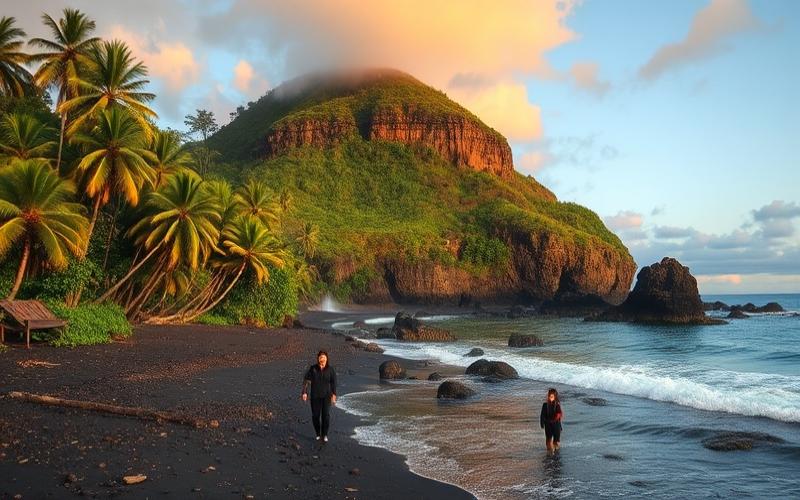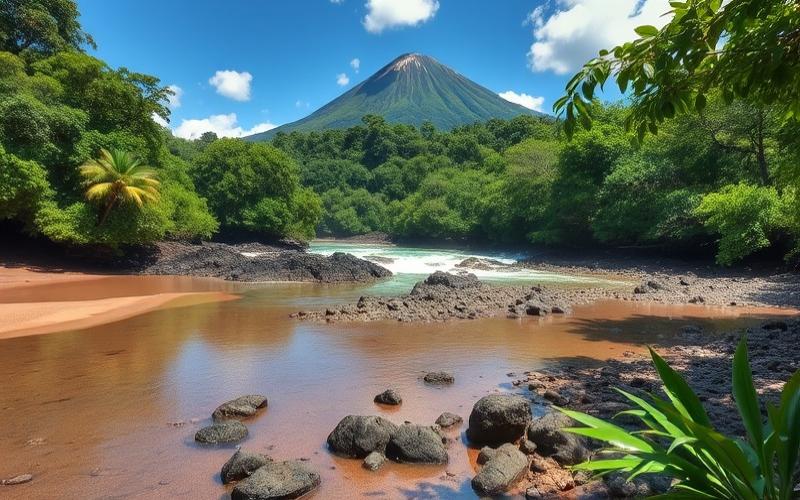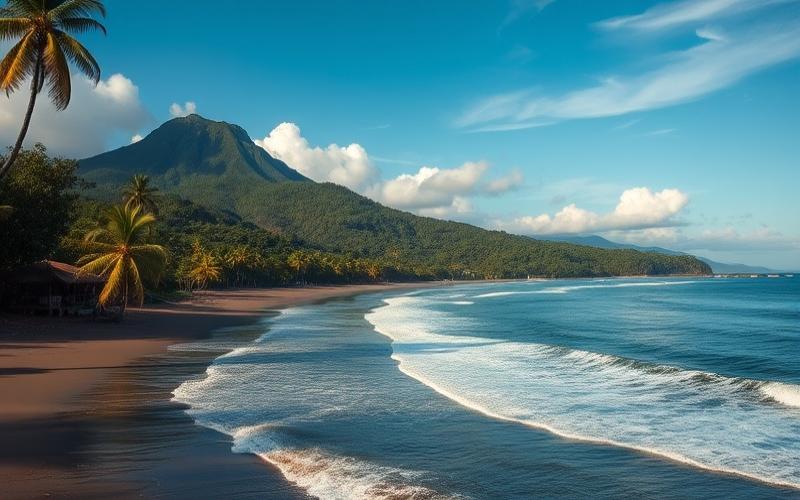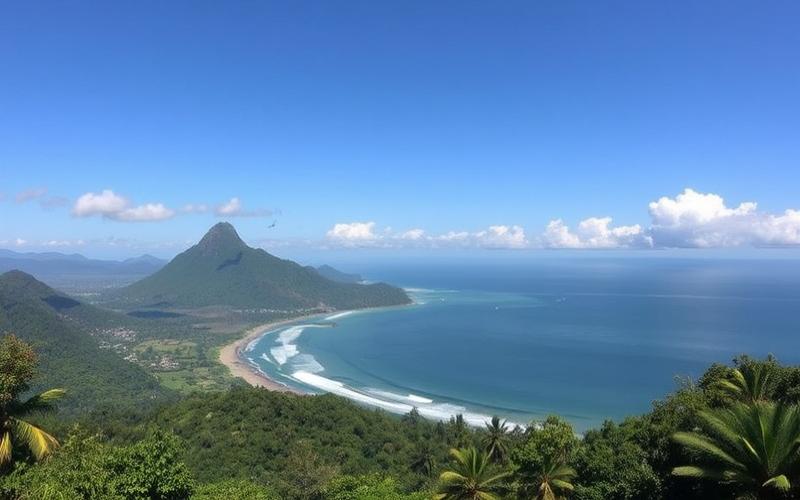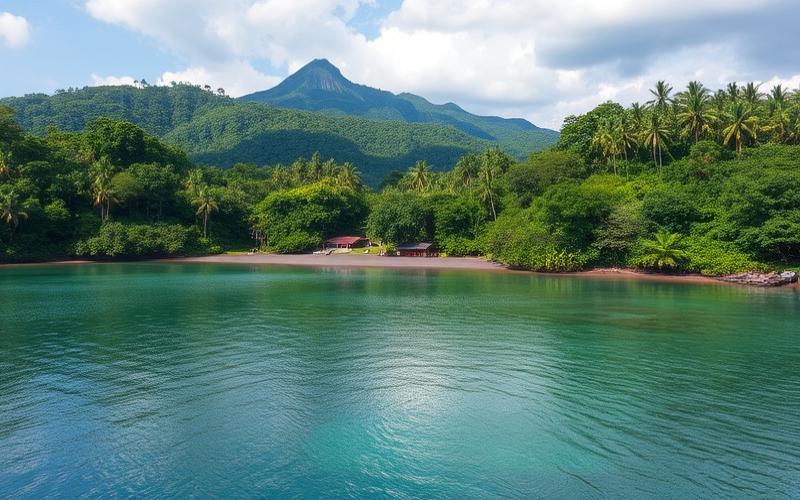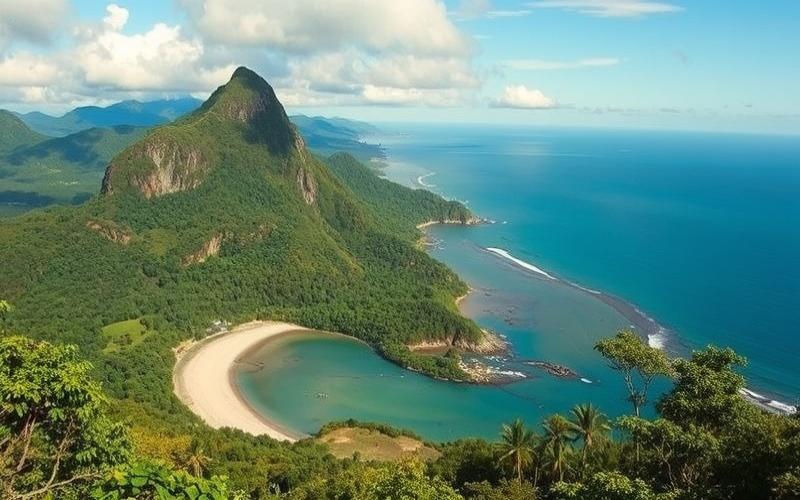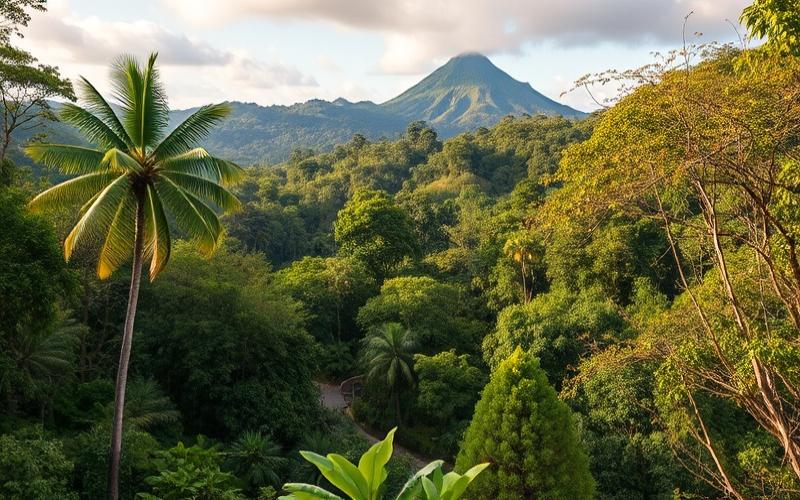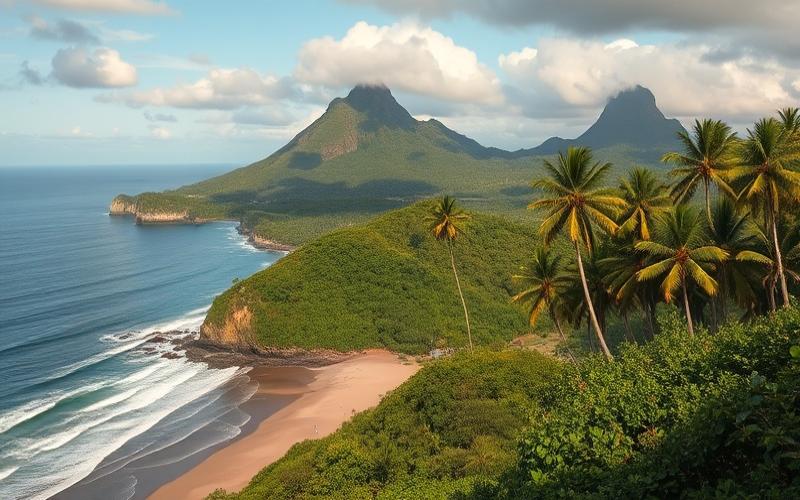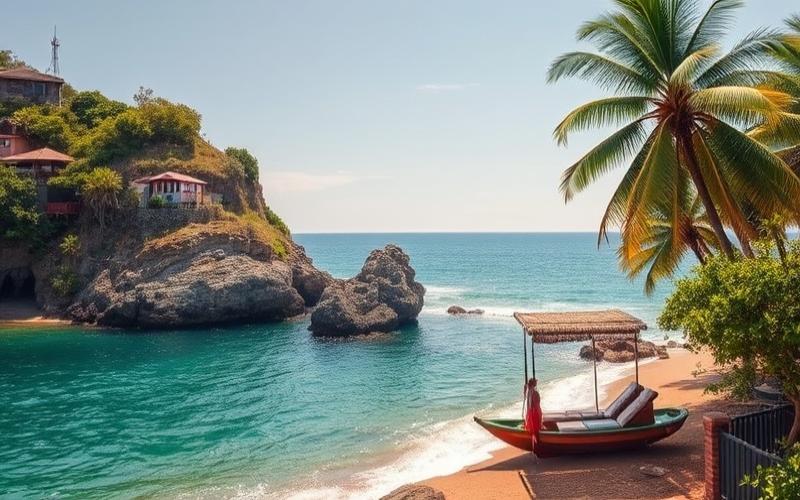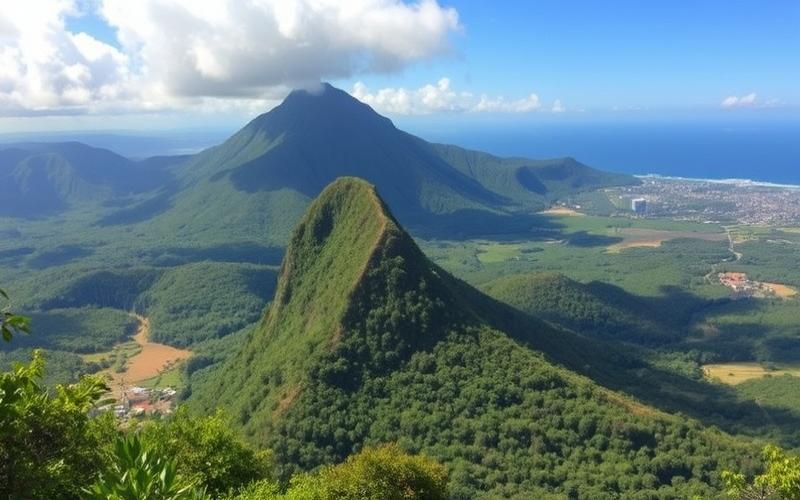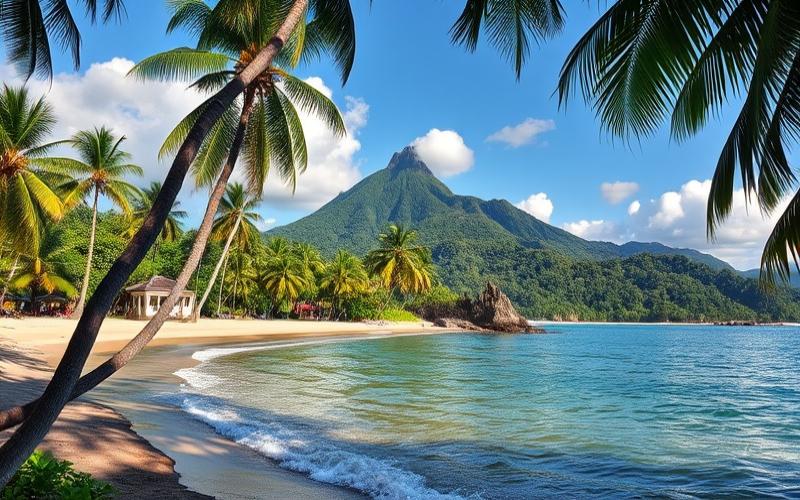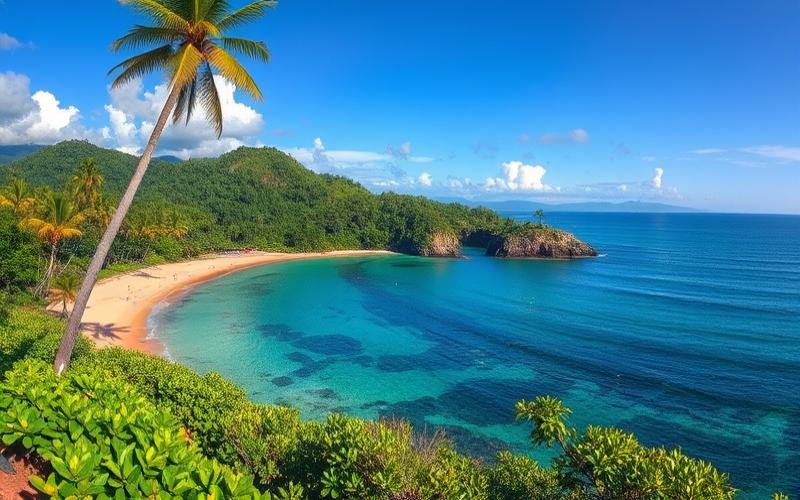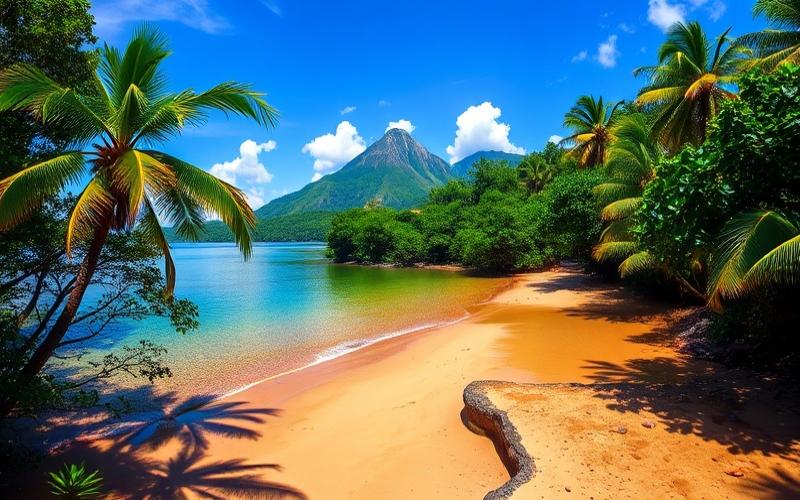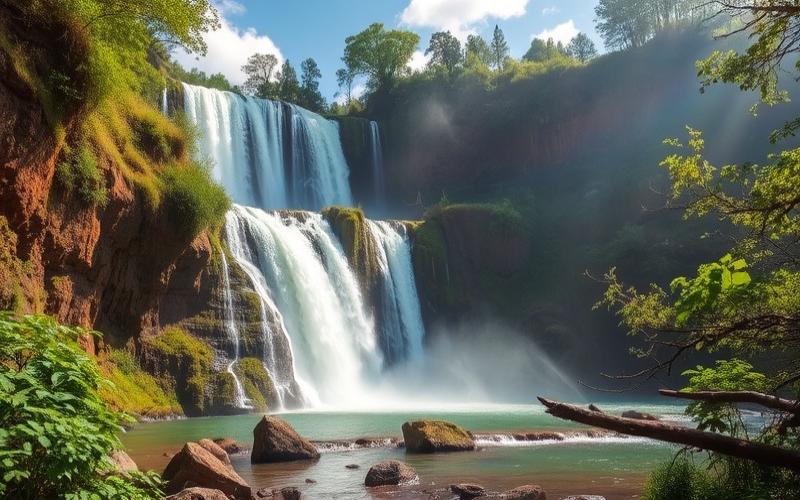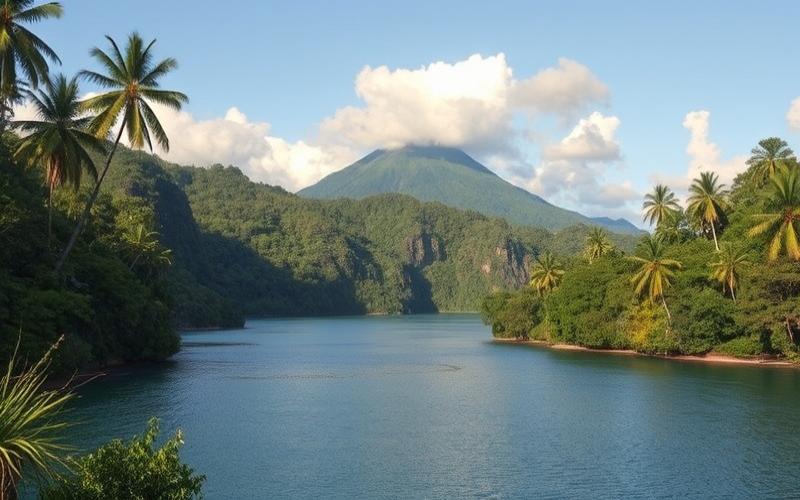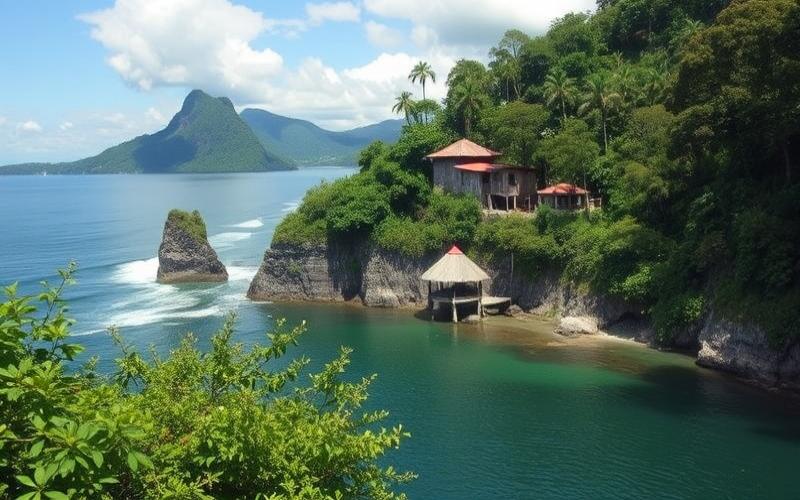
 Published on and written by Cyril Jarnias
Published on and written by Cyril Jarnias
Venturing into Costa Rica’s Real Estate Market
Venturing into Costa Rica’s real estate market is an enticing opportunity for anyone looking to invest in a paradise setting, but this endeavor is not without risks. While the promise of pristine beaches and lush forests attracts many potential buyers, numerous common mistakes can turn this dream into a nightmare.
From underestimating hidden fees to legal complications related to purchasing as a foreigner, it’s crucial to navigate with caution and knowledge. This article explores the most frequent pitfalls so you can make an informed and peaceful purchase in this real estate paradise.
Avoiding Pitfalls: Common Buyer Mistakes in Costa Rica
Common Mistakes When Acquiring Property in Costa Rica
- Poor understanding of local property laws
Many buyers ignore that the legal system in Costa Rica differs from that of their home country. Property restrictions in maritime zones, natural reserves, or concessions are not always obvious. Some properties may be built on untitled or protected land, exposing buyers to disputes or loss of their investment.
- Failure to verify property titles
Buying without verifying the validity and clarity of the property title is a major mistake. Over 22% of real estate disputes in Costa Rica are related to incomplete title verification. It’s essential to consult the National Registry to ensure the property isn’t burdened with mortgages, easements, or disputes.
- Neglecting preliminary inspections
Not conducting technical and environmental inspections can be very costly. Structural defects, erosion risks, or non-compliance with seismic standards are common, especially in coastal or mountainous areas. An inspection should include structure, electricity, plumbing, soil study, and environmental compliance.
- Underestimating additional costs
Many buyers neglect notary fees, taxes, renovation or maintenance costs, which can upset their overall budget.
- Lack of local market knowledge
Buying in an area without understanding its dynamics (tourist seasonality, accessibility, future development, safety) can lead to regrets and resale difficulties. It’s advisable to visit the neighborhood at different times of the year.
- Going without competent professionals
Thinking you can handle everything alone exposes you to many traps, especially in a different legal and linguistic context.
Tips for Securing Your Real Estate Purchase in Costa Rica
Selection of a professional and reliable real estate agent:
- Prefer an agent who is a member of a recognized professional chamber.
- Check their references and experience in the target region.
- Ensure they master local market specifics and act with full transparency.
Consultation with a local attorney specialized in real estate law:
- Choose an attorney independent of the seller or real estate agent.
- Verify they are registered with the Costa Rican bar association.
- Entrust them with verifying property titles, drafting or validating contracts, and managing administrative formalities.
Precautions to avoid scams:
- Never pay a deposit without a contract drafted and validated by an attorney.
- Demand complete due diligence: inspection report, title analysis, environmental compliance.
- Include a contingency clause in the purchase offer in case of non-compliance.
- Be wary of offers that seem too good to be true or pushy intermediaries.
| Common Risks | Essential Recommendations |
| Purchase on untitled land | Systematic verification at the National Registry |
| Undetected structural defects | Technical and environmental inspection |
| Hidden disputes or easements | Involvement of a local attorney |
| Overestimation of rental potential | Thorough analysis of the local market |
| Transactions without official documents | Always require notarized deeds and contracts |
Key Takeaways:
- Never rely solely on photos or the seller’s word.
- Inform yourself about local environmental and urban planning regulations.
- Take time to get to know the community and region.
- Perform complete due diligence before any commitment.
Good to Know:
When considering purchasing real estate in Costa Rica, it’s crucial to avoid certain common mistakes. First, understanding local property laws is essential, as they can differ significantly from laws in your home country. Buyers often neglect to verify property titles, which can lead to legal complications. It’s indispensable to conduct preliminary property inspections to avoid inconveniences after purchase. To secure your transaction, choose a reputable and reliable real estate agent, and don’t neglect consulting a local attorney specialized in real estate law; this can protect you against scams and ensure all transaction steps comply with local regulations. Make sure to thoroughly understand the Costa Rican real estate market by performing comprehensive due diligence to protect yourself from unpleasant surprises. For example, some properties may seem attractive at first glance but reveal complex structural or legal problems if not meticulously examined.
Expert Advice: Recognizing Warning Signs of a Risky Investment
Real estate experts agree on several warning signs of a risky investment in Costa Rica, as well as mistakes to avoid and precautionary measures to adopt.
Common Mistakes Identified by Experts:
- Inadequate property inspection:
- Neglecting technical, structural, environmental, or legal inspection.
- Examples of necessary inspections: foundations, roofing, moisture, compliance with seismic standards, soil study, building permit verification, environmental compliance.
- Testimony: An American investor in Uvita omitted inspection. After purchase, he discovered the house was on unstable ground, costing over $80,000 in repairs.
- Ignorance of local rules and regulations:
- Misunderstanding environmental regulations (many protected areas limiting buildability).
- Risks related to purchasing through an offshore or local company without analyzing specific legal and tax constraints.
- Non-compliance with permits or acquisition of illegal properties, even if already built.
- Overheated markets:
- Being seduced by areas where demand is exploding without analyzing growth sustainability.
- Risk of real estate bubble and price overvaluation, especially in tourist coastal areas.
- Offers too good to be true:
- Abnormally low prices or unrealistic return promises.
- Increased risk of scams, hidden defects, or legal non-compliance.
Summary Table of Main Warning Signs and Common Mistakes:
| Warning Sign | Explanation/Consequence | Example/Testimony |
|---|---|---|
| Lack of complete inspection | Risk of hidden defects, high repair costs | House in Uvita, unstable ground, $80,000 in repairs |
| Non-compliance with local regulations | Fines, inability to use the property | Construction in protected area, forced demolition |
| Overheated market | Overvaluation, difficulty reselling | Purchase during bubble, value drops after purchase |
| Offer too good to be true | Risk of scam or irregularity | Unrealistic rental return promise |
Testimonies from Investors Who Experienced Setbacks:
- An investor who purchased without inspection saw their profitability wiped out by unexpected repair costs (house built on unstable land).
- Others lost their investment by purchasing land in protected areas, impossible to develop or resell legally.
Expert Recommendations to Mitigate Risks:
- Always perform complete technical, legal, and environmental due diligence, with detailed inspection report before purchase.
- Verify compliance of property titles and building permits.
- Surround yourself with competent local professionals: specialized attorney, notary, engineer, recognized real estate agent.
- Be wary of overly attractive offers and prioritize transparency.
- Learn about property rules (squatting, easements, protected areas) and ensure their respect.
- Include contingency clauses in purchase offers to protect yourself if defects or irregularities are discovered.
- Consider caretaking for unoccupied properties to avoid squatting.
“Even an already built house can be illegal if it’s in a protected area. Inspection must always include environmental verification.”
“The last defense against real estate scams in Costa Rica is technical and environmental due diligence.”
Recommended Checklist Before Any Purchase:
- Technical and environmental inspection report
- Verification of property titles and absence of mortgages
- Analysis of local regulations and construction restrictions
- Consultation with a specialized local attorney
- Market study to avoid purchases during overheated periods
Important Text to Remember:
A successful real estate investment in Costa Rica relies on rigorous due diligence, knowledge of the local legal context, and caution toward overly attractive offers. Inspection and regulatory understanding mistakes are costly: better safe than sorry.
Good to Know:
To recognize a risky investment in Costa Rica’s real estate market, experts emphasize the crucial importance of thorough property inspection and understanding local rules, often ignored and potentially leading to disastrous investments. According to investor testimonies, many suffered setbacks by not performing due diligence, highlighting that offers too good to be true are often traps. Experts also recommend caution regarding overheated markets, where inflated prices may hide critical defects. A key tip is to consult specialized attorneys and meticulously verify property titles to avoid disputes.
Winning Strategies: Practical Tips for a Successful Real Estate Purchase
Essential Strategies to Avoid Common Mistakes When Buying Real Estate in Costa Rica:
- Rigorous verification of property titles
- Always require a recent extract from the national registry to ensure the seller is the legal owner, without mortgages or ongoing disputes.
- Some buyers discovered undeclared easements or property-related debts afterward. For example, a Canadian couple nearly lost their deposit after discovering a hidden tax debt late; their local attorney negotiated a resolution before the final deed.
- Hire a specialized local attorney
- An experienced Costa Rican attorney defends your interests, verifies all legal documents, and protects you against abusive clauses in contracts.
- Many testimonies emphasize that those who tried to handle the transaction alone faced major administrative complications, even financial losses.
- Thorough real estate inspection
- Never neglect technical inspection by an independent professional: moisture problems, structural defects, or non-compliant installations are frequent.
- An investor reports avoiding over $30,000 USD in repairs thanks to an inspection that revealed damaged roofing not disclosed by the seller.
- Understand the local market
- Costa Rica doesn’t have a centralized MLS: you need to compare multiple agencies and consult different sources to know the property’s true value.
- Neighborhood analysis (road access, safety, environment) is crucial because some promising projects on paper may be isolated or subject to seasonal flooding.
Additional Practical Tips:
List of key points to verify before any purchase
- Verify if all necessary permits (construction, electricity) are in order
- Request complete tax and cadastral history of the property
- Inquire about potential restrictions (protected/natural areas)
- Consult several reputable local real estate agents
Critical Points During Negotiation and Financial Management:
| Step | Common Mistake | Recommended Strategy |
|---|---|---|
| Price negotiation | Accepting without discussion | Always negotiate; up to 5% or more |
| Financing | Thinking to easily obtain local bank loan | Plan external financing; rare local options |
| Additional fees | Underestimating taxes/fees | Budget ~4.2% of final price for purchase costs |
| Recurring charges | Forgetting maintenance/taxes | Get precise information on annual costs |
Concrete examples of traps to avoid
- Buying “off-plan” without solid bank guarantee: some projects never complete due to lack of final permits.
- Believing a simple agreement is legally sufficient: only the registered notarized deed fully protects your rights.
- Ignoring local environmental laws can lead to mandatory demolition or heavy fines if illegal construction is discovered later.
Inspiring Testimonials:
“We took care to hire a bilingual local attorney from the start who scrutinized every document. She saved us from two bad surprises regarding hidden easements and we were able to conclude our purchase peacefully.”
Dupuis Family – Montreal
“The inspector found through local recommendation discovered that all plumbing needed redoing. We renegotiated $10,000 USD off the initial price thanks to his detailed report.”
Julien M., Paris
Good to Know:
To succeed in a real estate purchase in Costa Rica, it’s crucial to rigorously verify property titles to avoid unpleasant surprises and to hire a specialized local attorney who knows how to navigate the country’s complex legal system. A thorough real estate inspection is also essential to assess the property’s actual condition and avoid unexpected repair costs. Understanding the local market is fundamental, as is careful negotiation, since listed prices aren’t always set in stone, and a reduction can be obtained with well-founded arguments. Watch out for hidden costs like taxes and maintenance fees that can accumulate quickly; for example, John and Lisa, two recent buyers, testified about their surprise regarding HOA fees that weren’t discussed upfront. By avoiding these traps and following these strategies, buyers can ensure a smoother and more secure real estate transaction.
Understanding the Market: Decoding Legal Specifics in Costa Rica
Types of Properties Available in Costa Rica
- Luxury beachfront villas
- Single-family homes in city or countryside
- Condominium apartments
- Eco-villas (ecological and sustainable dwellings)
- Vacant building lots (urban or rural)
| Property Type | Description | Concrete Example |
|---|---|---|
| Luxury villa | Spacious house, often with pool, ocean view | Villa in Santa Teresa, beachfront |
| Eco-villa | Eco-friendly house, solar panels, etc. | Eco-villa in Nosara |
| Condo/Apartment | Housing in condominium, shared services | Condo in San José |
| Building lot | Parcel ready for construction | Lot in Tamarindo |
Land Restrictions and Local Laws
- Maritime zones (200-meter fringe from high tide line) are subject to the Maritime Terrestrial Zone Law: only the first 50 meters are inalienable, the following 150 meters can be subject to concessions but not direct purchase.
- Some protected or agricultural areas impose construction or density restrictions.
- Foreigners can purchase properties in full ownership, except in maritime concession zones where obtaining a concession is subject to stricter conditions (residency, local company, etc.).
Regulations Concerning Purchase by Foreigners
- Foreigners enjoy the same rights as Costa Rican citizens to acquire real estate in full ownership, except in concession zones.
- For maritime concessions, a foreigner cannot hold more than 49% of a concession company.
- It’s not mandatory to have resident status to purchase, but it’s advisable to open a local bank account to facilitate transactions.
Property Tax Nuances
- Property tax (Impuesto sobre Bienes Inmuebles) is 0.25% of the property’s fiscal value, payable annually to the municipality.
- For luxury properties (value above a certain threshold set by the state), an additional tax applies (“Impuesto Solidario”).
- Fiscal values are often lower than market values, which reduces the tax base.
Role of Notaries and Legal Professionals
- The notary is indispensable: they authenticate the sale deed, draft the public deed, and register it with the National Registry.
- The attorney can perform due diligence (title verification, mortgages, easements, ongoing disputes).
- The real estate broker (realtor) assists with search and negotiation but isn’t necessarily licensed.
Due Diligence and Common Legal Pitfalls
- Always verify: property title registration, absence of debts, disputes, or hidden easements.
- Frequent risks: dubious titles, double sale, illegal land occupation, construction without permits.
- Example: a foreign buyer acquires land in a maritime zone without realizing it’s a concession; they later discover they cannot legally be direct owner, leading to transaction cancellation.
Owner Rights vs. Tenant Rights
| Owner | Tenant |
|---|---|
| Right to sell, rent, modify | Right of use according to lease |
| Can terminate lease (conditions) | Protection against abusive eviction |
| Must respect rent law | Can demand repairs and safety |
| Obligation to pay taxes and charges | Obligation to pay rent |
- Residential leases are regulated: minimum duration of 3 years, annual rent review limited by official index.
- The tenant benefits from strong protections against abusive eviction, even in case of property sale.
Key Points to Remember
- Systematically verify the property title at the National Registry and use an independent notary.
- Prefer full ownership transactions outside concession zones, especially for foreigners.
- Be attentive to property taxes, particularly for luxury properties.
- Always consult a specialized attorney to avoid land disputes and hidden defects.
In summary: the Costa Rican real estate market offers many opportunities but requires rigor and legal support to secure any acquisition, especially for foreigners.
Good to Know:
In Costa Rica, real estate purchase can prove complex for foreigners, although they enjoy the same rights as local citizens regarding property ownership, with few exceptions, such as maritime concessions which are subject to restrictions. Among property types are urban lands or residential lots, as well as agricultural properties, each having its own regulations. The notary’s role, central to the process, is reinforced by the obligation to verify the property’s legal situation, including presence of debts or disputes that could hinder the transaction. It’s crucial to perform due diligence to ensure the seller has all rights to the property, thus avoiding future legal complications. Regarding property tax, it’s usually 0.25% of the value recorded in the national registry, but can vary depending on location and property use. Owners must also be vigilant about tenant rights regime, as tenants benefit from substantial protections under local legislation.
Disclaimer: The information provided on this website is for informational purposes only and does not constitute financial, legal, or professional advice. We encourage you to consult qualified experts before making any investment, real estate, or expatriation decisions. Although we strive to maintain up-to-date and accurate information, we do not guarantee the completeness, accuracy, or timeliness of the proposed content. As investment and expatriation involve risks, we disclaim any liability for potential losses or damages arising from the use of this site. Your use of this site confirms your acceptance of these terms and your understanding of the associated risks.

